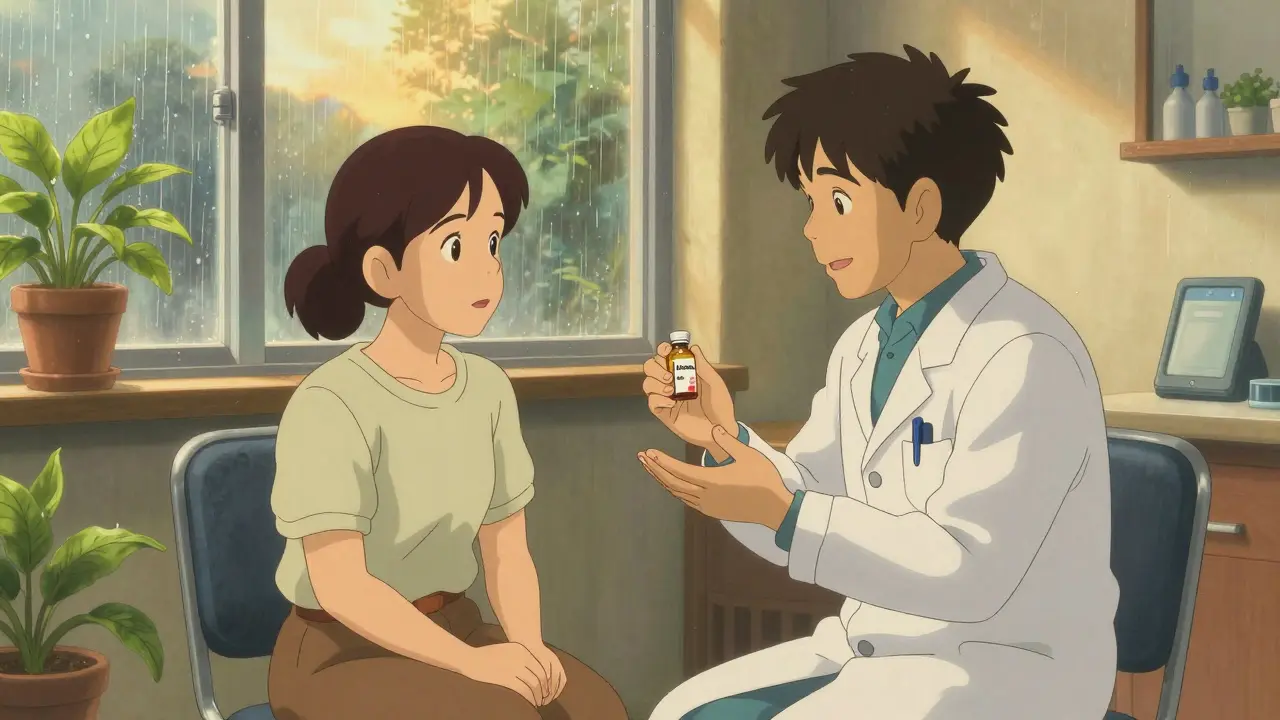Health and Wellness Tips You Can Start Using Today
Feeling overwhelmed by all the health info out there? You’re not alone. Let’s cut through the noise and focus on what actually works in daily life. Below are easy‑to‑follow steps that improve your well‑being without demanding a complete lifestyle overhaul.
Build Small, Consistent Habits
Big changes start with tiny actions. Drinking an extra glass of water each morning can boost hydration and support kidney health. Pair it with a short walk after lunch – ten minutes is enough to raise blood flow and clear mental fog. These micro‑habits add up, making you feel more energetic without feeling like you’re on a strict regimen.
Another simple tweak: set a reminder to stand or stretch every hour if you sit at a desk. A quick neck roll or calf stretch reduces tension and improves circulation. Over time, these brief breaks lower the risk of back pain and keep your posture in check.
Smart Medication Choices
When it comes to prescription drugs, understanding why you’re taking them matters. For example, many Australians rely on Norvasc (amlodipine) for blood pressure control; knowing its side‑effects helps you spot issues early and discuss alternatives with your doctor.
If you’re prescribed an SSRI like Lexapro, pay attention to mood changes in the first weeks and keep a symptom journal. This record makes conversations with your healthcare provider clearer and can prevent unnecessary dosage adjustments.
New anticoagulants are replacing warfarin for many patients because they have lower bleeding risks. Still, talk to your doctor about reversal agents if you’re concerned about emergencies.
Natural options also have a place. Overactive bladder sufferers often find relief with bladder retraining before reaching for medication. Simple timed voiding schedules train the bladder muscle and can cut down urgent trips to the bathroom.
Supplements like Canadian hemp or fir extracts are gaining popularity for their nutrient profile and sustainability. Choose products that list third‑party testing results, and start with a low dose to see how your body reacts.
Remember, any supplement or medication should complement—never replace—a balanced diet and regular activity. If you’re unsure about interactions, a quick chat with a pharmacist can save headaches later.
By combining modest lifestyle tweaks with informed medication decisions, you create a solid foundation for long‑term health. No need for extreme diets or marathon workouts; consistency is the real game‑changer.
Vitamin D and Statin Tolerance: What Really Matters
Vitamin D deficiency was once thought to cause statin muscle pain-but a major 2022 trial found no link. Here’s what actually works if you’re having trouble tolerating statins.
Barrier Repair in Eczema: How Ceramides and Proper Bathing Restore Damaged Skin
Ceramides and proper bathing are key to repairing the damaged skin barrier in eczema. Learn how the 3:1:1 lipid ratio restores moisture, reduces itching, and cuts steroid use-backed by science and real user results.
Osteoporosis: Understanding Bone Density Loss and How Bisphosphonates Work
Osteoporosis weakens bones and increases fracture risk. Bisphosphonates are the most common treatment, slowing bone loss and reducing fractures by up to 50%. Learn how they work, their risks, and how they compare to newer options.
How to Monitor Kidney Function for Safe Senior Dosing
Learn how to accurately monitor kidney function in seniors to avoid dangerous medication overdoses. Discover which eGFR equations work best, why creatinine can mislead, and what steps to take for safer dosing.
Cosmetic Procedures and Anticoagulants: What You Need to Know About Bruising and Bleeding Risks
Learn how blood thinners affect bruising and bleeding during cosmetic procedures. Discover which medications are safe to continue, when to pause them, and why stopping them can be more dangerous than the surgery itself.
Debunking Common Health Myths: What Science Says for Patient Education
Learn how common health myths like '8 glasses of water' or 'sugar causes hyperactivity' are debunked by science. This guide explains why myths spread, how to correct them, and why accurate info matters for patient care.
Managing Medication Storage in Hot Climates While Traveling
Heat can ruin your medications-insulin, EpiPens, birth control, and more-during travel. Learn how to store them safely in hot climates with proven tools, real-world tips, and expert-backed strategies to avoid dangerous, life-threatening failures.
Drug Allergies: Penicillin, NSAIDs, and Desensitization Protocols Explained
Learn the truth about penicillin and NSAID allergies, how desensitization works, and why most people labeled allergic can safely take these drugs again with proper testing and protocols.
Epilepsy Surgery: Who Qualifies, What Risks Are Involved, and What Results to Expect
Epilepsy surgery offers real hope for those with drug-resistant seizures. Learn who qualifies, what risks are involved, and what outcomes you can realistically expect-backed by current medical guidelines and real patient data.
Malignant Hyperthermia and Anesthesia: What You Need to Know About This Life-Threatening Reaction
Malignant hyperthermia is a rare but deadly reaction to common anesthesia drugs. Learn the warning signs, how it's treated with dantrolene, why speed saves lives, and what you should ask before surgery.









